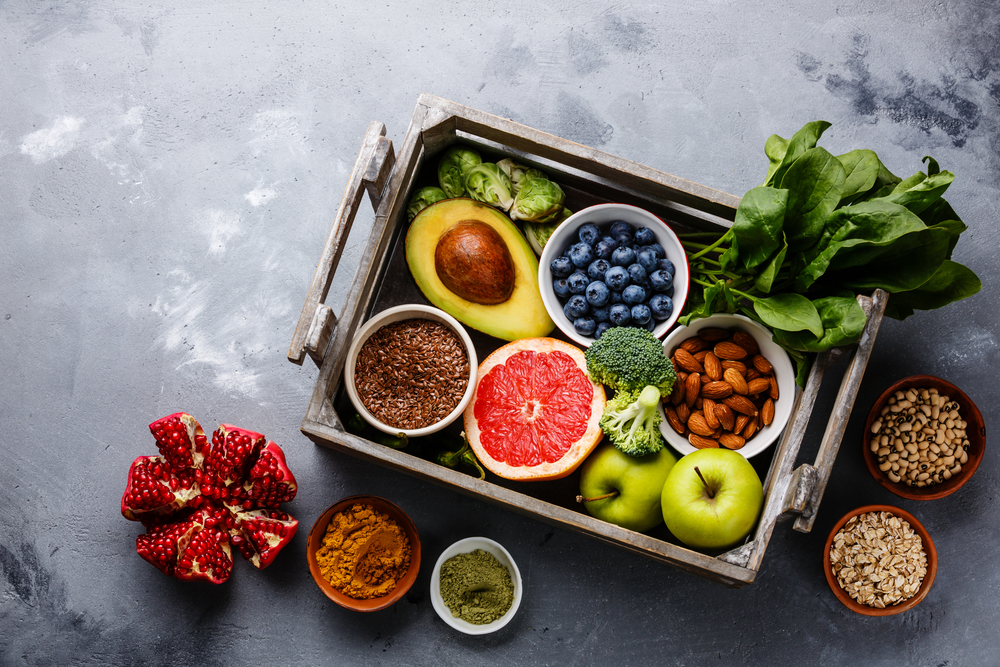Welcome to Nutrition 4 Neurodiversity, a discussion of the benefits of nutrition for autism, ADHD, anxiety & depression.
The number of families who experience autism spectrum disorders (ASD), attention deficit and hyperactivity disorders (ADD/ADHD) and mood disorders including anxiety and depression has grown in recent years. The most recent data shows the incidence of autism has grown to 1 in 59 children, up from 1 in 150 in 2002.1 This is partly a result of increased awareness and better diagnoses, but the increase is remarkable. Western medical practitioners frequently recommend medication to treat the symptoms of these conditions. This works well for many people, and for some it’s a necessary part of treatment. But for others, the side effects of medication outweigh the benefits. This is a personal choice for every family. But if you are interested in learning about a more holistic approach, or are looking for natural ways to support your current treatment plan, you’ve come to the right place.
New research shows that there are beneficial effects of diet and nutrition on the symptoms associated with neurodiversity. Research in the field of epigenetics also sheds light on how our environment and nutrition can affect the expression of our genes. This page and my blog contain information on beneficial nutrients, foods to avoid, and some common genetic mutations (SNPs) that predispose us to certain neurological traits. This includes dietary support for mood imbalances and challenging behaviors that occur as a result of neurological differences.
Before we dive into the benefits of nutrition for autism, ADHD, anxiety and depression, let’s talk about neurodiversity – what it means and how it presents both challenges as well as enormous benefits.
Neurodiversity is normal genetic, biochemical and neurological variation
“Neurodiversity is the idea that neurological differences like autism and ADHD are the result of normal, natural variation in the human genome. This represents a new and fundamentally different way of looking at conditions that were traditionally pathologized; it’s a viewpoint that is not universally accepted though it is increasingly supported by science. That science suggests conditions like autism have a stable prevalence in human society as far back as we can measure. We are realizing that autism, ADHD, and other conditions emerge through a combination of genetic predisposition and environmental interaction.”
John Elder Robinson, Psychology Today, 10/2013
In other words, neurodiversity is the expression of genetic, biochemical and neurological differences in the ways in which our brains operate. In many cases, this presents as autism, ADD and ADHD. Genetic and biochemical differences are also underlying factors in mood disorders such as anxiety and depression. But neurodiversity has many advantages. Neurological differences allow individuals to develop amazing creative and intellectual abilities. Just like biodiversity results in a variety of beneficial organisms on our planet, neurodiversity is responsible for variety in personality, temperament, and contributes to our culture of creativity.
Gifts and challenges of neurodiversity
Our neurological differences make us who we are as unique beings and should be celebrated and not considered something that should be changed or “cured.” In fact, some of the most productive members of society are thought to be/have been on the autism spectrum – including Albert Einstein, Bill Gates, Steve Jobs, Mozart, Michelangelo, Emily Dickinson, Daryl Hannah, Dan Akroyd, Stanley Kubrick, and Jerry Seinfeld.2 Neurological variation often manifests as giftedness and special talents that are a great benefit to society.
At the same time, these variations often include challenges and behaviors that can be difficult to manage, such as hyperactivity, tantrums, aggression, communication difficulties, and social/emotional dysregulation. In many cases, these challenges can improve with the right individualized dietary and nutritional support.

How can diet and nutrition affect neurodiversity?
We are all unique beings with a unique genetic background and environmental experiences that make us who we are. Our genetic blueprint may predispose us to certain tendencies, but it is also acted upon by environmental factors that affect the expression of these genes. This includes both external factors such as toxins and internal factors like diet and nutrient status.
The gut-brain axis
Remember that old saying, you are what you eat? It’s true! Our cells and tissues are literally made of what we put in our mouths. Not only that, we are what we digest. Some of us have compromised digestion, either from food allergies or gut bacteria imbalance. In fact, as many as 70% of autistic patients exhibit gastrointestinal tract-related symptoms.3 All of this affects our genes and brain function. That’s because our central nervous system (CNS) is connected to nerve endings in our gut called the enteric nervous system, which is like a second brain. This connection is called the gut-brain axis.
What’s more, 90 percent of serotonin, our “feel-good” neurotransmitter and hormone, is produced in the gut.4 In fact, all of our neurotransmitters, including excitatory epinephrine (adrenaline), dopamine and calming GABA are made out of amino acids (protein building blocks) that come from our diet and are converted with the help of friendly bacteria in our gut. So diet and digestion are literally a big deal for both mood (i.e. depression or anxiety) and brain function.

Nutrition for Autism, ADHD, Anxiety & Depression
While a generally healthy diet of organic, unprocessed whole foods is good for everyone, there is no one specific diet that is better than others to support autism, ADHD, anxiety or depression. Our genetic and biochemical differences create unique nutrient requirements. As such, our brains and bodies can thrive on individualized diets tailored to support our own unique bio-individual needs.
Below are just some examples of diets and therapeutic nutrients that can improve symptoms of autism, ADHD, anxiety or depression:
- Gluten-free/casein-free (milk protein)
- Avoiding food allergies and sensitivities
- Limiting phenols and salicylate
- Low-oxalate diet
- Ketogenic or paleo (grain-free) diet
- Targeted amino acid therapy
- Candida cleanse (yeast) and probiotics
These and other topics will be highlighted in my blog pages. Remember that we all have unique biochemistry and any one or combination of these therapeutic diets can be beneficial or not depending on the needs of your own body. This depends on your genes, your digestion, toxic load and nutrient status.
As a board-certified holistic nutrition consultant, I am here to help you navigate the best choices for you! I can help with digestion, ideas for picky eaters, identifying food allergies and sensitivities, meal planning and nutrient recommendations. Read on, or contact me for support!
References
- https://www.cdc.gov/ncbddd/autism/data.html
- https://www.appliedbehavioranalysisprograms.com/historys-30-most-inspiring-people-on-the-autism-spectrum/
- Zhu, X., Han, Y., Du, J., Liu, R., Jin, K., & Yi, W. (2017). Microbiota-gut-brain axis and the central nervous system. Oncotarget, 8(32), 53829–53838. https://doi.org/10.18632/oncotarget.17754
- https://www.caltech.edu/about/news/microbes-help-produce-serotonin-gut-46495
